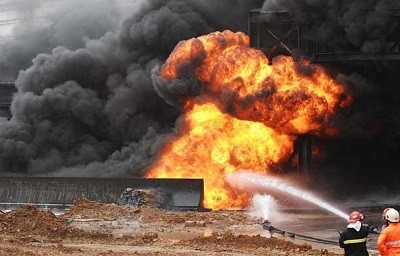Nigeria’s oil revenue faces a major setback following an explosion at a key crude oil pipeline capable of transporting 450,000 barrels per day (BPD). The incident, which occurred in a strategic oil-producing region, has raised concerns over supply disruptions, potential revenue losses, and heightened security risks in the sector.
Preliminary reports indicate that the explosion, which rocked the pipeline, may have been caused by sabotage, equipment failure, or operational mishaps. Authorities and oil companies operating in the region have launched investigations to determine the exact cause and assess the extent of the damage.
The affected pipeline is a crucial part of Nigeria’s crude export infrastructure, and its shutdown could result in production shortfalls, impacting the country’s foreign exchange earnings. Given Nigeria’s reliance on oil revenues, any prolonged disruption could exacerbate economic challenges, including foreign exchange scarcity and fiscal deficits.

Security concerns in the Niger Delta have long posed risks to Nigeria’s oil operations, with pipeline vandalism, illegal bunkering, and militant activities frequently disrupting output. Industry stakeholders have called for improved surveillance, stronger enforcement against oil theft, and better infrastructure maintenance to prevent such incidents.
While emergency response teams are working to contain the situation, analysts warn that if repairs take too long, Nigeria’s oil production could drop significantly, affecting global supply chains and pushing crude oil prices higher. The government and oil companies are expected to ramp up efforts to restore operations and ensure minimal economic impact.
Support InfoStride News' Credible Journalism: Only credible journalism can guarantee a fair, accountable and transparent society, including democracy and government. It involves a lot of efforts and money. We need your support. Click here to Donate
